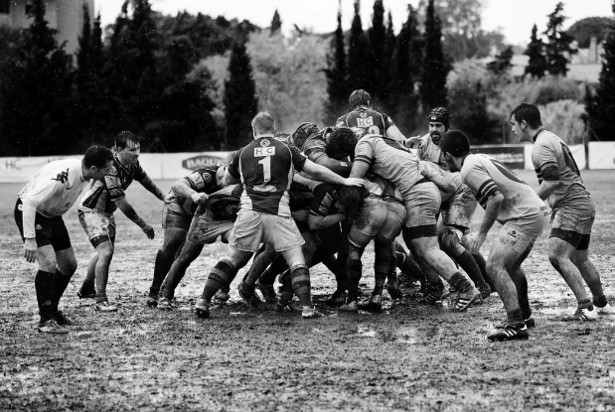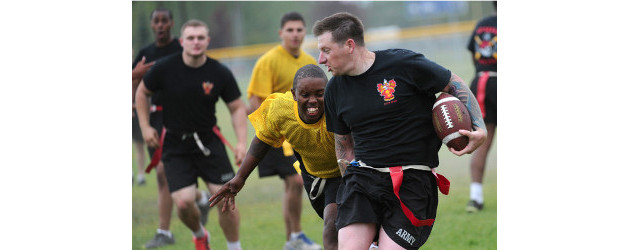Rugby Injuries Are On The Rise, But What Should The League Do About It?
Injuries in rugby are nothing new. It doesn’t get more physical than this high-contact sport. It’s difficult to imagine getting away without at least a scratch when you’re under attack from fifteen players. Unless you stood back and never attempted a try for the duration of the game, the chances are that you’re going to get a little bruised.
But, the severity of injuries which players are sharing is worrying for some fans. Is it just a case of social media making us more aware? It could well be, but that doesn’t negate the fact that images like those shared by Richard Hibbard are pretty worrying. Even worse, this career ending injury isn’t exactly a rarity on the field these days.
Ever play that game with a kid, when you try to steal their nose. Well it nearly happen ☹️☹️☹️ pic.twitter.com/GkcopstpQj
— Richard Hibbard (@richardhibbard2) February 7, 2016
In an article last year, The Guardian went as far as to suggest that increased injuries are now more of a stain on rugby than player reputation. And, it’s difficult to argue the point here. The problem is that the Rugby Union have always kept the game respectable and professional in recent years. Now, though, there are many suggestions that they’re loosening those reins a little too much. Many would even argue that brawn wins out over skill in the modern rugby league.
Of course, that’s a harsh judgement, and it isn’t reflective of the game on the whole. But, it is fair to argue the point that we need to see a change soon. Too many players are being taken out due to severe injuries. There have certainly been a few games of late which have looked much more like a football free for all than a professional rugby match.
So, what exactly do we expect the league to do to get things back on track?
Less contact training

Many believe that problems here come about as a result of increased confrontation in the sport. Some fans feel that players are too quick to get violent, rather than playing well. And, it would be fair to assume that this problem comes from a focus on contact in training. Of course, contact is an undeniably important part of the game for a contact sport like this. But, focusing too much on this could fast turn rugby into another game altogether. Instead, it may be best to take a leaf from the training book of Cork Tag Rugby instead. Tag rugby is ideal because it’s a non-contact version of the game we love. By using this method in professional training, the hope is that coaches can hone skill without inciting violence on the pitch. Of course, many worry that eliminating contact training could set a team back, and that is likely. There’s no denying, though, that mixing equal parts of these two training methods could make for an altogether more balanced play.
More attention to safe field play
In an ideal world, safety measures should mean that few rugby players receive injury, even during the roughest of games. The sheer amount of injuries we’re seeing at the moment would suggest that field safety regulations aren’t what they should be. The increased number of injuries at the start of each season also correlates this fact. In general, safe field play relates to the way players warm up and cool down. Failure to do this can result in a much more severe and lasting injury during play time. Safety here also comes down to the implementation of rules on things like tackling. If we’re to stand any chance at stomping out unnecessary injuries, referees need to make 100% certain that players are going by the rules. That seems to be something which just isn’t happening at the moment.
More time for each player

Many experts also suggest that limiting substitutions each game would also work towards building a safer and more cohesive play. This is in direct contrast to current rolling substitutions, which many feel make the game less accessible to players who want to display talent. And, that’s impossible to deny when you consider that some teams could use upwards of twenty substitutions in one game. Players would barely have time to get going before they’d be taken off again. That would make it increasingly difficult for any player to get up to speed. This substitution method also seems to have a focus on brawn over talent, which we so severely need to avoid. Instead of rolling those substitutions out, then, many would argue that the game would be better if fewer players were free to develop strategies for gameplay throughout.









